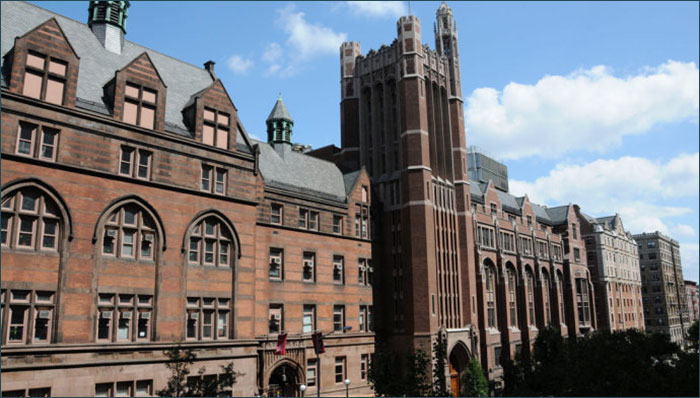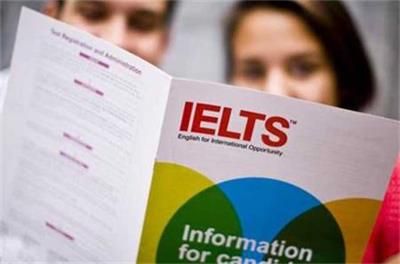雅思必备:100个关键词汇解析之“花费与开销”
嗨,大家好!我是留学生网站的小编,今天给大家带来一个超实用的专题——“雅思必备:100个关键词汇解析之‘花费与开销’”。如果你正在准备雅思考试,或者即将踏上留学之旅,这篇文章除了能帮你扩充词汇量,还能让你更好地理解海外生活的各种开销问题。废话不多说,让我们直奔主题吧!
1. Budget (预算)
首先,咱们得从“预算”说起。Budget这个词在日常生活中非常常见,尤其是在留学期间。比如说,你每个月的生活费、学费、住宿费等等,都需要提前做好预算。举个例子,你可以这样用:“I need to make a budget for my monthly expenses, including rent, groceries, and transportation.” 这样不仅能帮助你合理安排资金,还能避免不必要的经济压力。
2. Expense (开销)
Expense就是我们常说的“开销”或者“支出”。这个词在雅思写作和口语中都非常有用。比如,你可以这样描述你的生活费用:“My living expenses in London are quite high, especially the cost of accommodation and food.” 不仅如此,你还可以用它来谈论学习费用:“The tuition fees at my university are a significant expense, but I believe the education is worth it.”
3. Cost (成本)
Cost这个词通常用来指某个物品或服务的价格。在留学生活中,你会经常遇到这个词。例如,你可以这样谈论你的学费:“The cost of tuition at my university is around $20,000 per year.” 或者在购物时,你也可以用到这个词:“The cost of this textbook is a bit high, but it’s essential for my course.”
4. Price (价格)
Price和cost很相似,但更常用在日常购物中。比如,你在超市买水果时,可以这样说:“The price of apples has gone up recently, so I decided to buy bananas instead.” 在租房时,你也可以用到这个词:“The price of this apartment is reasonable, considering its location and size.”
5. Rent (租金)
Rent是留学生最关心的一个词之一,毕竟住的地方决定了你的生活质量。你可以这样描述你的房租:“I share an apartment with two roommates, and we each pay $600 in rent every month.” 或者在寻找房源时,你也可以用到这个词:“The rent for a studio apartment in downtown is usually higher than in suburban areas.”
6. Accommodation (住宿)
Accommodation指的是你的居住地,可以是公寓、宿舍、合租屋等等。在申请学校或者找房子时,这个词会经常出现。例如,你可以这样描述你的住宿情况:“The university offers on-campus accommodation, but it’s often fully booked, so I had to find a place off-campus.” 或者在和朋友讨论时,你可以说:“Finding affordable accommodation in a big city can be challenging, but it’s worth the effort.”
7. Tuition Fee (学费)
Tuition fee是每个留学生都必须面对的一笔大开销。你可以这样谈论你的学费:“The tuition fee for international students at my university is much higher than for local students, but the quality of education justifies the cost.” 或者在规划财务时,你也可以用到这个词:“I’m planning to apply for a scholarship to help cover the tuition fee.”
8. Living Expense (生活费)
Living expense涵盖了你在国外生活的所有费用,包括食宿、交通、娱乐等。你可以这样描述你的生活费:“My living expenses in New York are quite high, but I’ve learned to manage my budget carefully.” 或者在和家人讨论时,你可以说:“I’ve created a detailed list of my living expenses to show my parents how I’m spending my money.”
9. Grocery (食品杂货)
Grocery指的是你在超市购买的食物和日用品。在留学生活中,学会自己做饭不仅能节省开支,还能让你吃得更健康。例如,你可以这样描述你的购物经历:“I usually go grocery shopping once a week to stock up on fresh vegetables and fruits.” 或者在和室友商量时,你可以说:“Let’s split the grocery bill evenly since we both use the kitchen.”
10. Transportation (交通)
Transportation指的是你在城市中的出行方式,比如公交、地铁、出租车等。你可以这样描述你的交通费用:“I use public transportation most of the time because it’s cheaper than taking a taxi.” 或者在规划日常开销时,你也可以用到这个词:“I set aside $100 each month for transportation costs, which includes bus fares and occasional Uber rides.”
11. Utility Bill (水电费)
Utility bill指的是你的水电煤气等费用。在租房时,了解这些费用是非常重要的。例如,你可以这样描述你的水电费:“The utility bill for our apartment is included in the rent, which makes it easier to manage our budget.” 或者在和房东沟通时,你可以说:“We’re trying to reduce our utility bill by turning off lights when they’re not needed.”
12. Internet (网络)
Internet是现代生活中不可或缺的一部分,特别是在留学期间。你可以这样描述你的网络费用:“I pay $30 per month for high-speed internet, which is essential for online classes and research.” 或者在和室友商量时,你可以说:“Let’s split the internet bill equally since we all use it for different purposes.”
13. Phone Bill (电话费)
Phone bill指的是你的手机话费。在留学期间,保持与家人的联系非常重要。例如,你可以这样描述你的电话费用:“I have a prepaid phone plan that costs $20 per month, which includes unlimited calls and texts.” 或者在选择套餐时,你可以说:“I’m considering switching to a postpaid plan to get better data coverage.”
14. Entertainment (娱乐)
Entertainment指的是你在业余时间的休闲活动,比如看电影、吃饭、旅行等。虽然留学生活很忙碌,但适当的放松也是必要的。例如,你可以这样描述你的娱乐开销:“I try to set aside some money each month for entertainment, like going to the movies or trying new restaurants.” 或者在和朋友计划周末活动时,你可以说:“Let’s check out that new museum exhibit this weekend; it’ll be a great way to unwind.”
15. Insurance (保险)
Insurance是留学生必须考虑的一项重要开销,包括健康保险、旅行保险等。你可以这样描述你的保险费用:“I have a comprehensive health insurance policy that covers most medical expenses, which gives me peace of mind.” 或者在和家长讨论时,你可以说:“I recommend getting travel insurance before you leave for your study abroad program.”
16. Scholarship (奖学金)
Scholarship是很多留学生减轻经济负担的重要途径。你可以这样描述你的奖学金申请:“I applied for several scholarships to help cover my tuition fees and living expenses.” 或者在成功获得奖学金后,你可以说:“I’m grateful to receive this scholarship; it will significantly reduce my financial burden.”
17. Part-time Job (兼职工作)
Part-time job是许多留学生赚取额外收入的方式。你可以这样描述你的兼职经历:“I work part-time at a local café to earn some extra money and gain work experience.” 或者在和朋友分享时,你可以说:“Balancing part-time work and studies can be challenging, but it’s a valuable learning experience.”
18. Savings (储蓄)
Savings指的是你存下来的钱。在留学期间,学会储蓄是非常重要的。你可以这样描述你的储蓄计划:“I try to save at least 10% of my monthly income to build an emergency fund.” 或者在和父母讨论时,你可以说:“I’ve been saving up for a trip during the summer break, and I’m almost there.”
19. Debt (债务)
Debt是指你欠别人的钱,包括学生贷款、信用卡账单等。在留学期间,避免债务是非常重要的。你可以这样描述你的债务管理:“I’m careful about taking on debt and always try to pay my credit card bills on time.” 或者在和朋友讨论时,你可以说:“Managing student loans can be tricky, but it’s important to stay on top of your payments.”
20. Financial Aid (经济援助)
Financial aid是学校提供的经济支持,可以帮助学生减轻经济负担。你可以这样描述你的经济援助申请:“I applied for financial aid to help cover my tuition fees and living expenses.” 或者在成功获得援助后,你可以说:“I’m grateful for the financial aid package; it will make a big difference in my studies.”
好了,以上就是关于“花费与开销”的20个关键词汇解析。希望这些词汇和例句能帮助你在雅思考试中取得好成绩,也能让你更好地应对留学生活中的各种开销问题。如果你有任何疑问或者想了解更多相关内容,欢迎在评论区留言哦!祝大家留学顺利,考试顺利!






